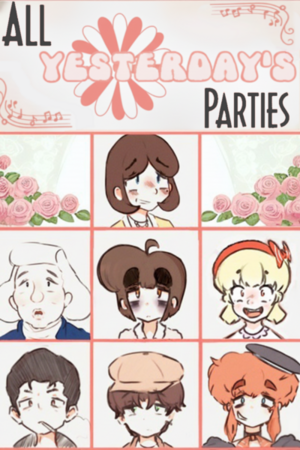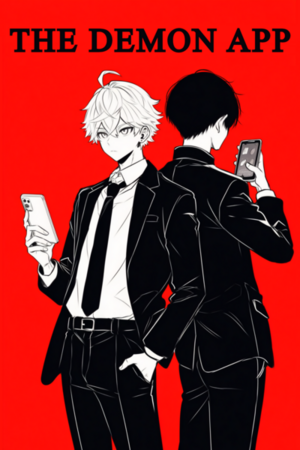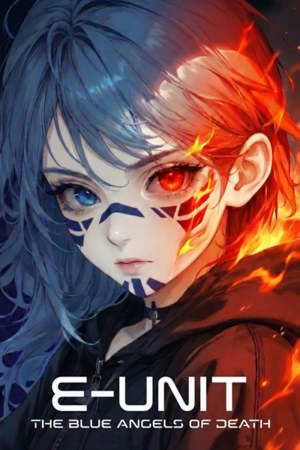Chapter 1:
The Garden of Eden (Part 1)
All Yesterday's Parties
A night sky bleached by light pollution revealed itself as the limousine drove onto the stadium field. Fifty-thousand voices erupted, shaking the windows with their collective roar like some clamoring wind. Aster could feel the hairs on her arms stand up. There they were, she thought, looking out the window at the terraces of bodies which climbed toward the night—an adoring public, beyond this upholstered door—a city's worth of worship.
The chauffeur popped the door, and she was whisked away through a cloud of flashing lights and up a stage, then across a field of stacked amps, snarled cables, and roadies and managers scrambling in their last-minute panic. At the front of the stage was a microphone, waiting. She approached, her chest burning with excitement. The vast audience was beyond, looking like a roiling sea of melting gold, all glittering and twinkling like every star in the sky had fallen into this stadium. They were all chanting for her. This is what life is about, she thought as she picked up her guitar. She slipped the strap over her neck, stepped forward, and struck a chord—
—and tore her eyes from the poster. There were no fans here, only one sad girl in a room full of make-believe. Scribbled setlists, discarded autograph practice, a beloved Flying V, decorated by hand; it felt more to her like a child's playpen than the room of someone seriously dedicated to their work. She glanced back up at the poster, which her stupid, triumphant face covered. The Love You Forevers in Concert!, read big blocky text above her, followed by dates for concerts that would never happen.
She scowled and turned toward her window, through whose adaptive glass the sunset was bleeding. It mortified her to think that there was ever a world in which she believed in that fantasy enough to draw it, let alone tape it to her bedroom wall. It was as if she wanted everyone who came into her room to see clearly just what she had failed to achieve. Magnificently pathetic, considering she could count the non-bot plays of her songs on one hand, and had never received a compliment for her songs from anyone other than her father. Why hadn't she torn it down, then, if all it did was torture her?
She lowered her head and began to cry. Her wellness AI offered to talk, to send the family servo in with MoodBoost, but she muted it, as she always did.
She fell back onto her bed, sniffling. The message asking if she gave guitar lessons still hovered above, obnoxiously bright and unanswered. She wanted to reach out and punch it, to reach her hand through that pane of light and grab the sender by the collar and ask what kind of joke they thought they were playing, because that's the only thing it could be. Who would want lessons from her, the girl who couldn't interact with the few people who still made music, or even reply to the few comments she ever got? It had been several hours since she received the message and still couldn't understand where it came from. It had no state ID attached to it, which was obviously illegal, and which filled Aster with paranoid dread. Who was to say it wasn't some trap from the state, investigating her strange fixation with pre-reset culture, a cruel prank, or worse—somebody attending Dahlia's dinner tonight?
She went nearly fetal position with the thought. It was bad enough that her return to the world was with one of the year's biggest social events, but to add the immense shame of explaining her music had gone nowhere to people who would only be too glad to hear it made the prospect unthinkable. She didn't have it in her to admit what she knew their looks would say—that being a musician in 2066 was like saying you were returning to the caves. It was an 'interesting excursion', but one that grew into 'deviancy' the longer she pursued it, with the end result that nobody remained by her side except her father, whose patience even she knew had to have its limits. And this made her feel guiltiest of all—the idea that she could eventually burn through all that seemingly limitless goodwill.
His voice suddenly chimed through her telepath. “Aster? It's almost time to go.”
Her heart leapt; she screamed into her pillow.
“I'll be there in a second,” she mumbled, rolling onto her side. She didn't want to leave her room, didn't want to go out in her stupid dress, on display like a neon sign. Her baggy eyes, her thick eyebrows, her unruly hair; how she hated the feeling of people looking at her. She wanted to fling the dress in the trash and tear the earrings from her lobes. Here she was spiraling while she could be trying to write another song, or working on the next album that actually did something! So what if she knew it wouldn't succeed? It was the only thing she could do—the only way she knew how to live.
She got out of bed and looked down at the dress—a roiling pool of black silk threaded with emerald—and felt her face flush. Pulling it taut, she tried to make it look even a tiny bit less ridiculous, but nothing helped. Nothing diminished the humiliation, or made it any less a costume of inadequacy.
She stepped into the hallway, on the verge of tears. Down the hall, her father sat on the living room couch, mustache twitching as he blinked through something on his Augmented Reality display. He, too, was transformed for the occasion, wearing a suit that lent more of an air of power than she'd ever seen in him before, and an expression unusually solemn.
He brightened as she entered.
“There you are,” he said, smiling. “We're just waiting for your mother. Then we'll go.”
Aster said nothing. A knot of pain tightened in her stomach, and she moved toward the couch.
“Wait,” he told her, rising. He picked up a small, dark mahogany box, lifted the lid, and produced a cream and pink sash.
Aster recoiled. “I'm not wearing that,” she protested.
“Unfortunately, you don't have a choice,” her father said blithely, uncoiling it. “We all have to wear one.”
“Why? I'm not the one being inducted.”
“Doesn't matter,” he said, draping it around her shoulder and leaving her to fasten it at her hip. “The Sunbeam's family is being honored every bit as much as the Sunbeam herself.”
But I look so fucking stupid, she wanted to say. Her face heated as he adorned his own. The sashes stuck out like sore thumbs.
“See? It doesn't look so bad,” he said, smoothing his down.
Aster didn't reply, just buried her face into the crook of her shoulder. “It's just a dinner,” she muttered after a pause.
“Your first in a while,” he corrected.
Your first time leaving the apartment in years, loser, was what she knew he wanted to say, and tried to repress a scowl as the thought darkened her already miserable face. To her parents, leaving was nothing; to Aster it was like entering an alien world. It took all her strength to even imagine crossing the threshold into the hallway (the only glimpse of the outer world she'd had for years) and into this place that could throw anything at her— a stranger loaded with judgment, an ad claiming to know 'just what her songs were missing', the certain knowledge that every step you took was being registered somewhere—the outside world was a battleground. Her parents' company was no comfort; eyes would find Aster, regardless.
“We'll be out of there before you know it,” her father said, trying to reassure her. He smiled gently as he returned to his seat, and Aster looked away. She knew that her medical stream was showing him the portrait of grotesque anxiety metastasizing within her. He could see it, but couldn't understand it, because if he did he wouldn't be able to smile so freely, she thought, and grew disgusted with herself. She hated the loneliness pain brought, how it made her sometimes bitter towards him, and despised feeling like the wreckage that had to be pitied for her broken nervous system.
“Has mom told anyone about my guitar playing lately?” she asked, sitting down at the far end of the couch.
“I don't think so,” he said, returning his attention back to his AR. “Why do you ask?”
Aster, who hadn't told anyone about the request, looked away. “I just don't want her blabbing about it at dinner.”
“Don't worry, she hasn't,” he said, then smirked, “But maybe I will.”
Aster, blushing, threw a pillow at him. “I'm serious, Dad! I don't want anybody saying anything to me!”
He caught the pillow and lobbed it back. “You're going to have to talk a little. You know how Jacob is.”
Aster let the pillow hit her. Jacob was going to be there. Their rosy-cheeked, elderly neighbor, who held the distinction of being one of the only people in the world to have held a conversation with Aster, and who would no doubt be beyond excited to see her. She thought back regretfully on the youthful exuberance that made her proclaim, as a child who had to crane her neck to look up at him, that she would be the world's greatest rockstar. Her face heated with shame. The thought of seeing him now, of being pestered with his questions, all the while unable to meet his eye and stuttering like an idiot, made Aster want to die on the spot. She could just picture the rest of the table following suit, feigning curiosity and mourning her career with looks of pity.
“I don't need to be there,” she blurted.
Her father looked up. “You do, Aster. We've talked about this.”
“Dahlia doesn't even care if I'm there.”
“She does care, Aster.” He turned fully to her, glanced down the hall where his wife could be heard getting ready, then muted her from the feed. “Not getting along with your sister doesn't mean she doesn't love you. I can personally tell you she'd be disappointed if she didn't see you.”
“And it has nothing to do with the fact that she wouldn't be promoted if the whole family didn't show up?” Aster snapped.
He blinked. “Both things can be true. Being part of the Sunbeams doesn't make her love her sister any less.”
Aster crossed her arms and turned away. She wished her father would at least try to be honest; she couldn't remember the last non-sarcastic, argumentative interaction she had with her sister, let alone imagine her welling up with joy at seeing her at the dinner.
“What's wrong?” he asked, looking concerned.. “You were fine just a minute ago. If it's about Jacob, I can keep him busy—”
“Whatever, it doesn't fucking matter!” Aster shot back, drawing her arms tighter. “I'm forced to go, just like I'm forced to smile when mom comes in the room, and like I'm forced to give up my music.” Her chest was heaving, and she struggled not to burst into tears right there.
“Aster,” her father, now looking pitifully upon her. “I know this is the most difficult for you. Believe me, I'm very proud and grateful that you're coming with us.”
“I don't have a choice!” she sputtered.
“We'll be back home in no time, I promise. Jacob will not pester you, your mother won't make a scene; just please consider her. Tonight really will do a lot for her.” He then lowered his voice. “And if not for her, at least do it for me, because seeing her happy would make me happy. Maybe this helps her find herself again.”
“I don't see how being delusional enough to think the Penthouses would open just because her daughter became a Sunbeam is 'finding herself',” she said bitterly.
“It's not delusional. It's a dream for a lot of people.”
“Who are all fucking delusional!” she exclaimed. “I mean, when have you heard of a single thing ever happening there, dad? Nobody dies, nobody moves out! It's obvious whoever lives up there doesn't intend on going anywhere. You don't even have to think hard to realize that, but they can't see past their blind hope!”
“Is that really any different from your own dream?” he replied, now looking firmly at her.
Aster froze. Then, growing a deep red, turned away.
“Look at it this way, Miss Aster,” interjected Rene, the family's domestic servo, who'd come in to huddle with the group. “With this you'll have taken the first step to re-entering the world; you can finally attend the Floréal Theatre's personal concert series, which I know you've been dying to attend for some years!”
Aster scowled. “Fuck you!” she snapped, turning away.
Rene rose and feigned offense with a mock gesture of 'who, me?' as he always did.
“Aster,” her father chided.
“He's making fun of me! Look at his fucking smile!”
“You'll be okay,” he told her, adjusting his collar. “I promise.”
Aster's heart sank. Footsteps in the hall followed, and then her mother was at the doorway, imperious as ever. Huge diamonds dangled from her lobes, catching the sunset and glittering like crystallized fire.
She peered at Aster, then frowned. “You look like you haven't slept in weeks,” she said, leaning in.
“She looks fine,” her father said casually.
She looked incredulously at him. “She looks like she's going to a funeral.”
“A fucking funeral would've been better,” Aster mumbled to herself.
“What was that?” her mother asked.
“I said—”
Rene rushed in, armed with a makeup kit.
“One moment!” he said, brandishing a concealer brush which he aimed at the dark circles under her eyes as she swatted him away. “You're so pretty, dear, let's not spoil it with those bags. Have you been following your sleep schedule that I posted for you? I've noticed that you've been protesting the sleep supplements I've been putting in your food—”
“That's enough, Rene. We're going to be late,” said her mother, eyes still fixed on her daughter. “Please, for God's sake, smile just once. There doesn't always have to be a black cloud following you around.”
“Come on, Margreta,” Aster's father said, steering her toward the door with a gentle hand on her back.
Aster glanced over her shoulder as the floor-to-ceiling windows adjusted to let the sun's crushed-orange light spill through them. She gazed, trance-like, at the towers of glass, geometric and varied in height, that covered the Earth like a glittering forest. Her insides were so taut in that moment that she couldn't understand how they didn't snap right there.
“Aster, come on!” her mother urged.
Obeying, Aster followed. She paused at the threshold, eyes spilling over with tears. Shake as she might, like a little child, nobody was taking her hand to say it was alright. Time had severed Aster from the greater world. It had formed a chrysalis that now, with the pneumatic gasp of the door, was being torn open. Life, whether Aster wanted it or not, had to be lived.




Please sign in to leave a comment.